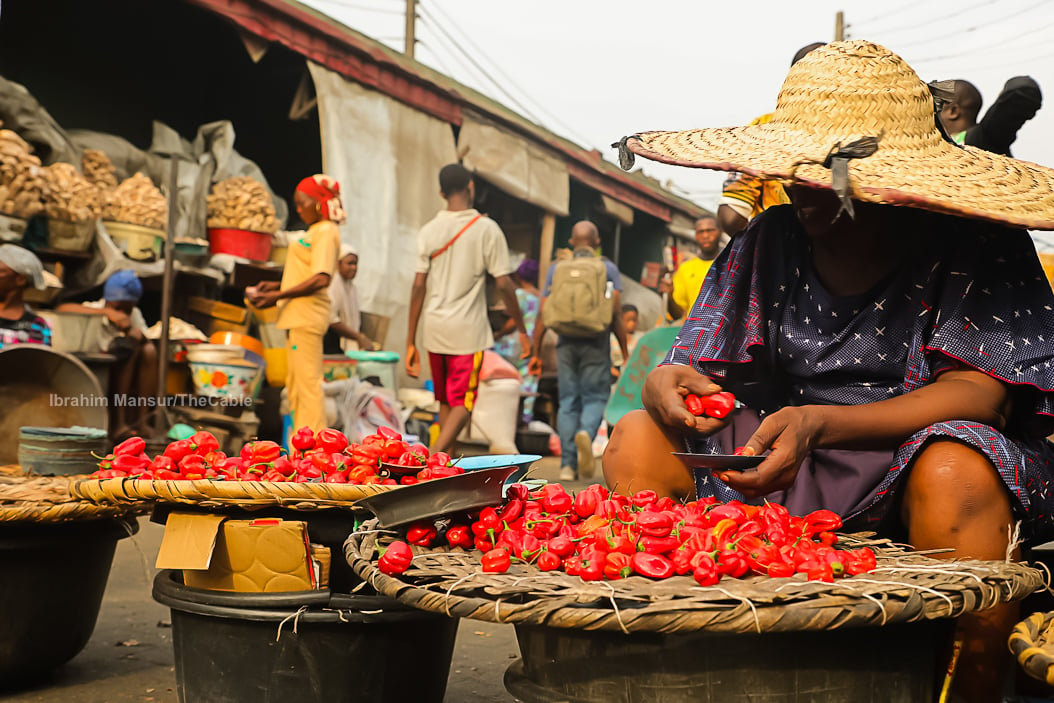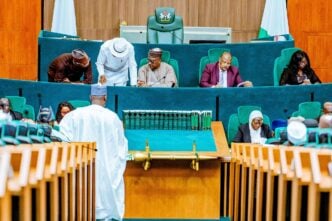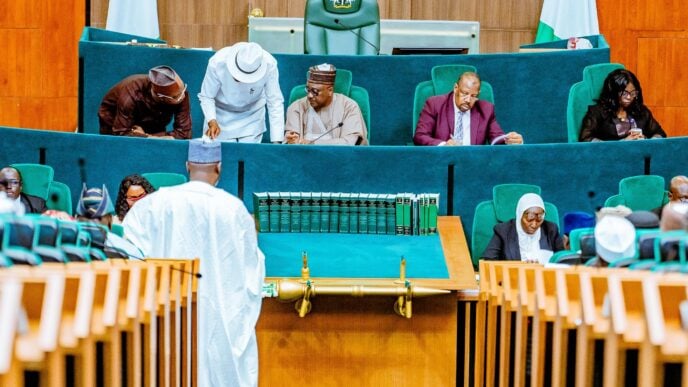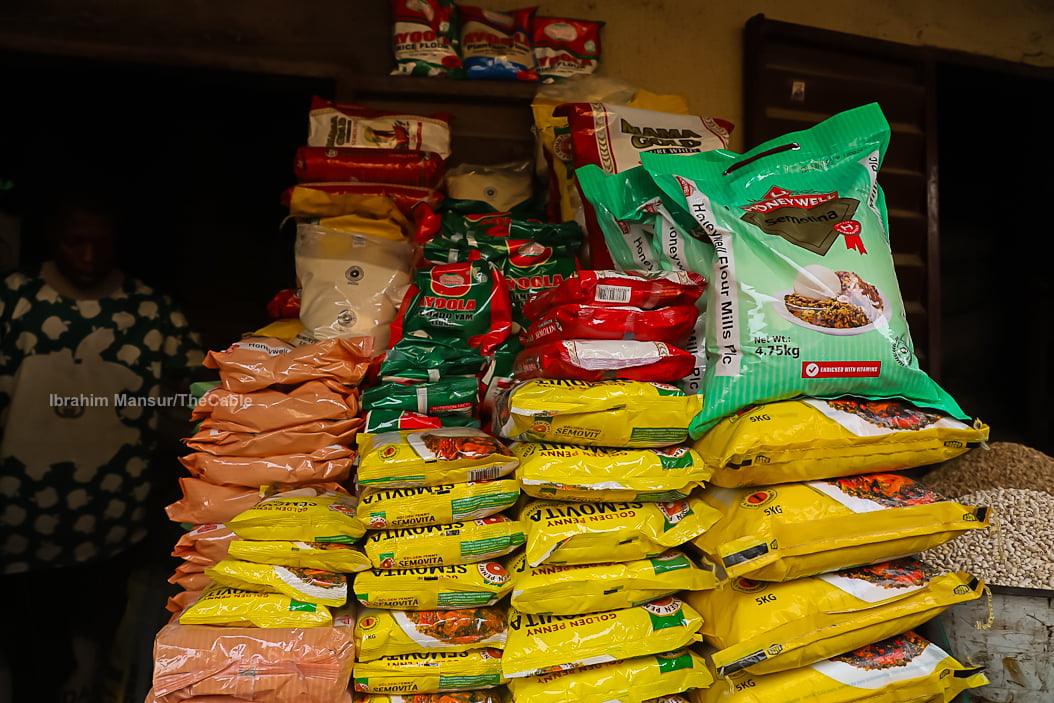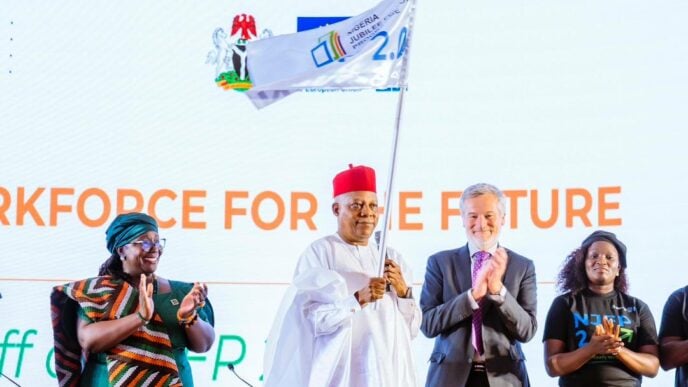A new report by Moniepoint has revealed that 41 percent of women-owned informal businesses in Nigeria earn less than N10,000 in daily profit.
According to the Moniepoint Informal Economy Report 2025 produced in partnership with the International Finance Corporation (IFC), by comparison, only 34 percent of men-owned informal businesses earn below the same threshold.
The report, which examines trends among millions of unregistered micro and small enterprises, found that women-owned ventures also tend to have shorter lifespans, with just one in four surviving beyond five years.
Moniepoint said women make up 35 percent of business owners in the informal economy, a decline from 37 percent recorded in the previous year’s report.
Advertisement
“41% of women-owned businesses in the informal economy earn less than ₦10,000 per day in profit, compared to 34% of businesses owned by men. On the other hand, 16% of men-owned businesses earn above N50,000 compared to 10% of women-owned businesses,” the report reads.
“The majority of businesses in the informal economy (65%) have experienced some sort of increase in their business revenue over the past year.
“However, the impact on profit is lower, with only about 47% of them reporting a corresponding increase in their profit.”
Advertisement
The study also highlighted the growing cost pressures facing informal businesses across the country.
“79% of businesses in the informal economy report that their cost of doing business has increased over the past year,” the report added.
“According to them, this increase resulted from multiple things, with the top reasons being increased prices from suppliers, an increase in transportation costs, and the depreciation of the naira.”
BUSINESSES REFUSE TO TAKE LOAN DUE TO HIGH INTEREST RATES
Advertisement
According to Moniepoint, more businesses choose not to take loans to support their businesses due to high interest rates.
“While 30% of respondents reported not borrowing for their business in our previous report, that figure increased to 51% in this report,” the report said.
“This shows a decline in credit appetite across the informal and small business landscape. A major reason for this could be tighter lending conditions, and a higher interest environment.
“The most common reason why they don’t take loans is that they’re afraid of being unable to repay them. 26% of them also believe that their businesses do not need a loan, while 11% would prefer to use their savings or funds for business needs.
Advertisement
“Women are more likely to avoid getting a loan because they’re afraid of being unable to repay, or because of high/unfavourable interest rates.”
The report added that while women were also more likely to get loans from informal sources than men, very few informal businesses get access to large loans.
Advertisement
“Only 6% of informal businesses have secured loans exceeding N1 million. Informal businesses owned by men are twice as likely to get loans above N1 million as women-owned businesses,” Moniepoint said.
More so, the report explained that 69 percent of informal businesses save less than N50,000 monthly, adding that 42 percent of them also report that their current savings can last them less than one month if they stopped getting income from their business.
Advertisement
Moniepoint highlights that the informal sector continues to rely heavily on cash payments, with many operators unable to afford point-of-sale (POS) terminals.
The fintechs company added that transfers, however, are becoming increasingly common, especially for business-to-business transactions.
Advertisement
Commenting on the report, Tosin Eniolorunda, founder and group chief executive officer (CEO) of Moniepoint Inc., said “under the radar, the cost of doing business has increased for 80 percent of informal businesses”.
“Our goal is to help key stakeholders see and understand the effects of every decision made on informal businesses, and giving them a voice where they’ve previously gone largely unheard,” Eniolorunda said.
Foyinsolami Akinjayeju, CEO of Enhancing Financial Innovation and Access (EFInA), urged coordinated policies to close gender gaps and improve financial inclusion.
She recommended regulatory incentives for financial institutions that provide tailored credit and insurance products for women-led microbusinesses.
“Policies must shift from fragmented interventions to coordinated measures that guarantee access, digital inclusion, and gender equity,” she said.
Similarly, Chinyere Almona, director-general of the Lagos Chamber of Commerce and Industry, said small operators need simpler tax systems and incentives that make formalisation attractive rather than punitive.
“Compliance should be rewarding, not burdensome. Gender-sensitive credit, simplified registration, and targeted tax relief will go a long way in empowering micro-entrepreneurs,” Almona said.
Also, Jumoke Oduwole, minister of industry, trade and investment, said unlocking the potential of the informal economy especially for women and youth is critical to building a more prosperous future.
